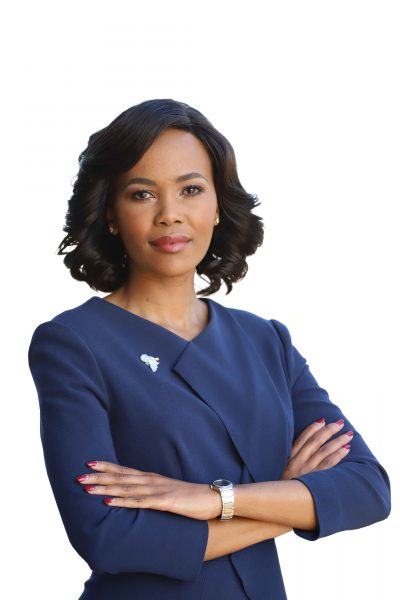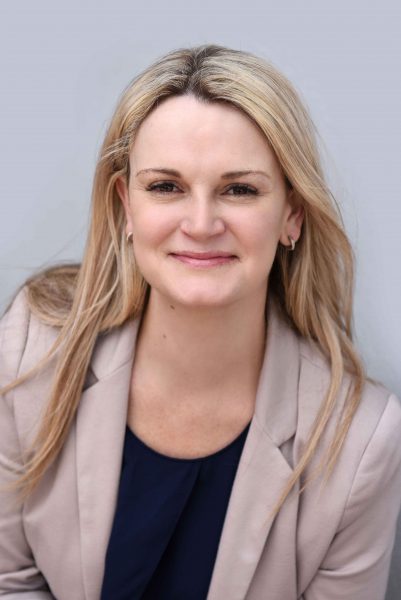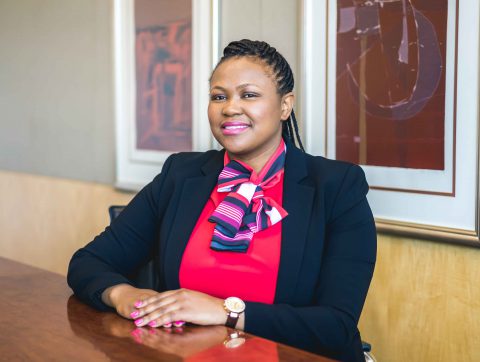Celebrating Women
Making It In Finance And Insurance
Nothing is impossible
Jabulile Kubheka, partner at Ernst & Young Africa

Growing up in Sharpeville, Soweto, Jabulile Kubheka didn’t have any real role models. “The most successful people I knew owned taxis and liquor stores,” she quips. However, she knew that education was her only way out of poverty. “I sat my family down in Grade 6 and told them quite plainly that I would never attend a township high school, so they needed to make a plan,” she remembers.
Even though it was a big ask, Kubheka did get to go to the high school of her choice in the Free State, but it came at a price. “I wore one dress and the same pair of shoes throughout my high school years,” she recalls, “so it was dedication and persistence that helped me succeed, as well as my faith, which reminds me that nothing is impossible.”
It is perhaps this struggle that has shaped Kubheka’s views on the emerging buying power of women. “Banks and insurers need to recognise that women generally have a more financially inclusive approach to money and put the needs of others before their own,” she says. “On the positive side, we now have insurance products that are tailored to women on the basis of their lower risk profile.”
However, she feels that the cost of credit is still too high for most women. Having grown up poor herself, Kubheka knows exactly what a difference loans can make to empower women. “We know from research across emerging markets that financing women on a small scale has a far bigger impact on poverty reduction than financing men does,” she says. “Female entrepreneurs are also more likely to repay loans, especially when finance is extended at the co-operative level.”
While financing any entrepreneurial goals women may have, the industry also needs to address prejudice in the workplace. “The majority of junior staff working in this industry are women,” she says, “but only one in four females reach a senior role, highlighting the struggle we face to close the gender gap.”
Another challenge is that women very often tend to want to play the ‘man game’. Kubheka, a self-confessed lover of all things feminine, from the way she dresses to her interactions with her colleagues and clients says: “I’ve never had to be loud or aggressive to be heard,” she says.
“I’m not saying women should be subservient, but we shouldn’t change who we are in order to succeed in the corporate world.”
You don’t need to take the conventional route
Sacha Knott, CEO of Switch 2

Sacha Knott is not your average financial type; she’s more a techie at heart. And she has married working and studying since the beginning of her career. “I did a computer programming diploma while I was still waitressing,” she remembers. “Then I got my first job as a network administrator at a software company, working my way into a proper programming job.”
Later Knott realised she needed a degree to further her career. “When I looked for more senior roles, I was often questioned about my lack of formal education, so I got my degree part-time while I worked two jobs,” she says. It turned out to be the right decision. “The degree helped me understand what I was learning at work, and vice versa. And I realised you don’t always need to take the conventional route to get into your chosen career.”
Although she’s now in the financial world, Knott still programs – and probably always will – but today this entrepreneur heads up a company that helps customers switch from one credit life insurer to another: Switch2.
Although Switch2 is now owned by Clientèle Life, it was initially Knott’s start-up.
“We recognised a gap in the industry,” she says. “Credit life insurance is very misunderstood, was previously unregulated and consumers were being overcharged, which is why we wanted to help them save money.”
She had to borrow money to start her business. “But we were lucky enough to sign up the second investor we spoke to,” she says.
“We simply used our personal networks to start discussions — it worked for us.”
Knott is proud that her team is 97 per cent female, although the COO is a man. “When I’m out of the office, he takes over,” she says.
“He is far more black and white, while I try to understand the grey areas, creating a bit more understanding for my team.”But she says they both learn from each other’s leadership styles and he has learnt to listen more constructively when conflict does arise.
Still a lot to be done
Ncumisa Madinda, Gauteng director at Absa Wealth and Investment Management
At the age of 22, Ncumisa Madinda found herself a leader and it was a rude awakening. Recruited in her final year at Nelson Mandela Metropolitan University, she joined the Absa management trainee programme. “The programme was meant to take 24 months, but I was spotted as being ready at six months and given my first job of branch manager in Port Elizabeth,” she says.

She had a double burden – convincing her employees she could do the job, as well as her customers. “Often bank customers would refuse to engage with me when they had problems and would ask for someone more senior,” she recalls with a wince.
Flourishing in the man’s world of finance has been tough, she concedes. “You walk into a job knowing there are many who are watching you and thinking you will not survive. That can put unnecessary pressure on you, as well as being a waste of time and energy,” she says. But Madinda quickly learnt to capitalise on her skills. “I’ve used my ability to connect with people in a way that matters to them, taking time to understand what motivates them and recognising the value they bring to the table.”
Her time at Absa was cut short by the global recession of 2008, which brought about restructuring at the company. She then joined SA Breweries, an organisation that had no tolerance for under-performance.
“This made me better at driving sales and working well under pressure,” says Madinda. Her next move was into the insurance industry where she managed sales teams for both Sanlam and Old Mutual. Today she has come full circle, working again at Absa, where she looks after the banking needs of high-net-worth individuals.
Madinda believes that the financial industry hasn’t yet fully taken advantage of the huge buying power of women. “There is still a lot to be done,” she says, “from ensuring that educating women about finances starts at the most basic level and then moving to more complex topics.”
The best way to enlist women and offer them holistic financial planning is to really understand their lives, she maintains.
“Today women are juggling careers and running businesses to provide for their families, raising children, being a wife, a single parent and supporting their elderly parents.”






 Sign-up and receive the Business Media MAGS newsletter OR SA Mining newsletter straight to your inbox.
Sign-up and receive the Business Media MAGS newsletter OR SA Mining newsletter straight to your inbox.